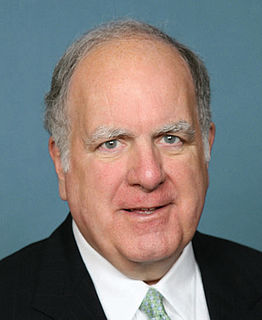A Quote by George W. Bush
My pan plays down an unprecedented amount of our national debt.
Quote Topics
Related Quotes
Consider in Washington, around the country today we are talking about balanced budgets, paying down our national debt, getting the economy going, defending ourselves, activist judges. Newt Gingrich did all those things when he was speaker. We got tax relief. We got balanced budgets. We got, you know, job creation. We paid down our national debt.
It took the national debt two hundred years to reach $1 trillion. Supply Side Economics quadrupled the national debt to over $4 trillion in twelve years (1980-1992) under the Republicans. Bill Clinton actually paid down the national debt. How did he do it? He raised taxes. It produced the longest sustained economic expansion in U.S. History.
The U.S. has a law on the books called the debt limit, but the name is misleading. The debt limit started in 1917 for the purpose of facilitating more national debt, not reducing it. It still serves that purpose. It's unconnected to spending, hurts our credit rating and has been an abject failure at limiting debt.
There's also consumer debt, the credit card debt that burdens many of the working families in America. Yes, we talk about national debt, and we're paying a lot down. But you're fixing to hear me tell you part of the remedy for people who have got a lot of credit card debt is to make sure people get some of their own money back.
There is a lot of fiscal conservatives in the United States senate that didn't vote for that because we understand that national security spending is not the reason why we have a debt. Our debt is being driven by the way Social Security, Medicare, and Medicaid and, by the way, the interest on the debt is structured in the years to come.
Most people don't know this, but if you settle a debt for less than the amount you owed, you are potentially responsible for taxes on the forgiven debt. Look at it this way: You received goods and services for the full amount of debt, but you're only paying for a portion of it - sometimes less than 50%. Anything more than $600 is generally considered taxable, but the IRS will sometimes waive the tax if you can prove that your assets were less than your liabilities when the debt was settled.
































